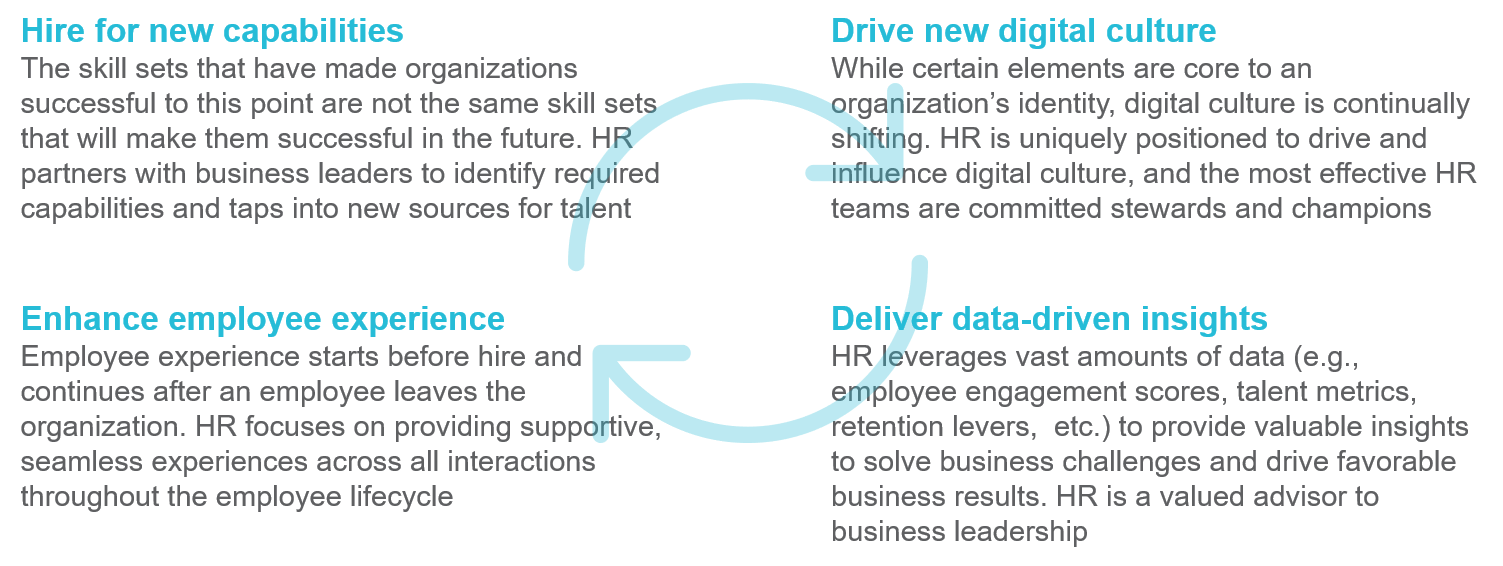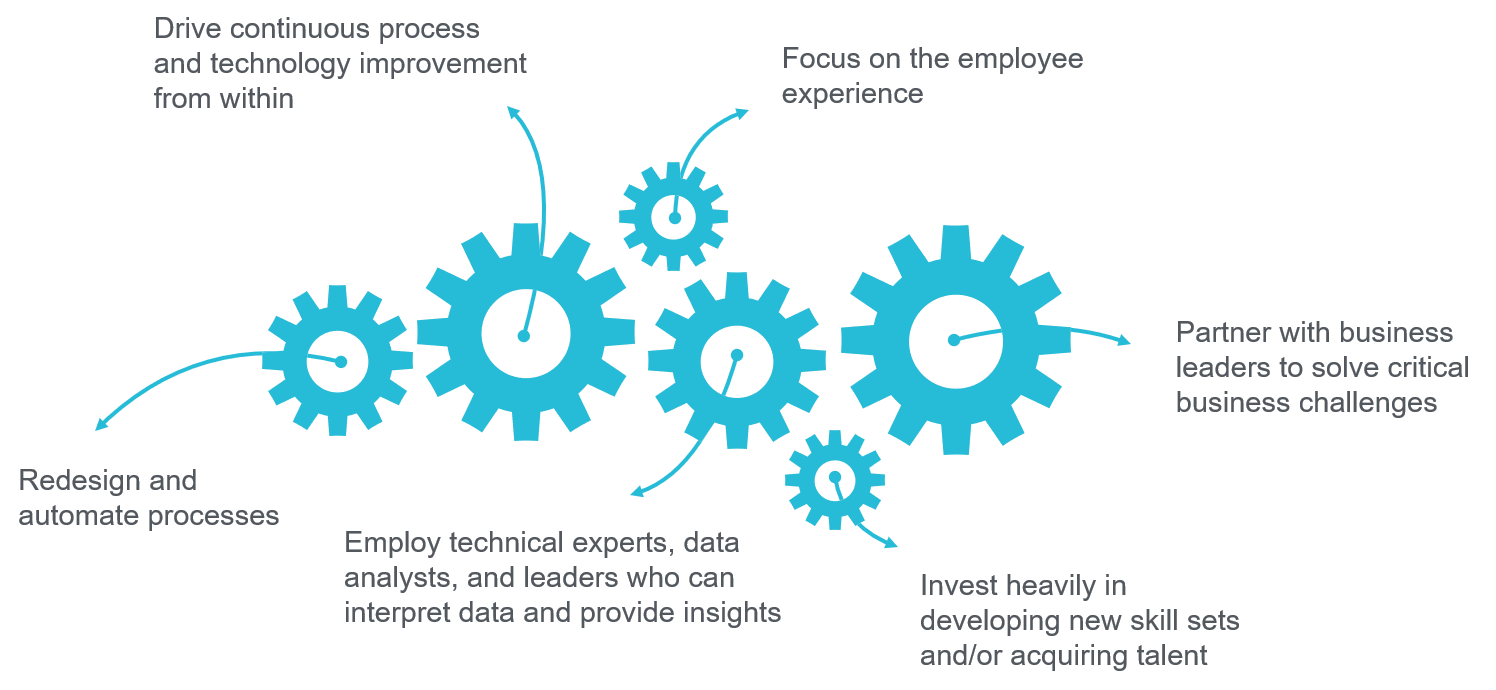
Download the Full Series Access Article 2 Access Article 3
In this information age, we are constantly reminded of disruption, the rate of exponential change, the future of work, customer experience, digital transformation…and the list goes on. However, these discussions often fail to recognize that human resources (HR) can and should play a central role in navigating the uncertainty and ambiguity that lies ahead. As organizations adapt to the shifting landscape, HR can play a critical role in four key areas:

In order to assume these roles, the focus of HR must change. Many HR teams spend their time and energy on transactions, administrative tasks, and programs designed and/or developed through an HR-focused lens. Not surprisingly, the competencies and organizational structure of HR teams do not typically translate to the competencies or organizational structure required to create a value-based role in HR. An internal transformation to realign work and upskill staff is necessary before HR can effectively help leadership transform the organization. High-performing HR teams have shifted their focus to help solve the most challenging business problems by sharpening their business acumen, leveraging data to make informed decisions, and maintaining a customer-centric mindset. Characteristics of leading practices organizations feed off one another, generating a flywheel effect of accelerated change, heightened employee engagement, and superior business outcomes.

The transition to the new role of HR is a complex and time-consuming process, but the outcomes of the transition can significantly elevate the role of HR in the organization. ScottMadden has helped countless HR organizations undertake and succeed in every phase of their journey. For more information, please contact us.
View More
Sussex Economic Advisors is now part of ScottMadden. We invite you to learn more about our expanded firm. Please use the Contact Us form to request additional information.